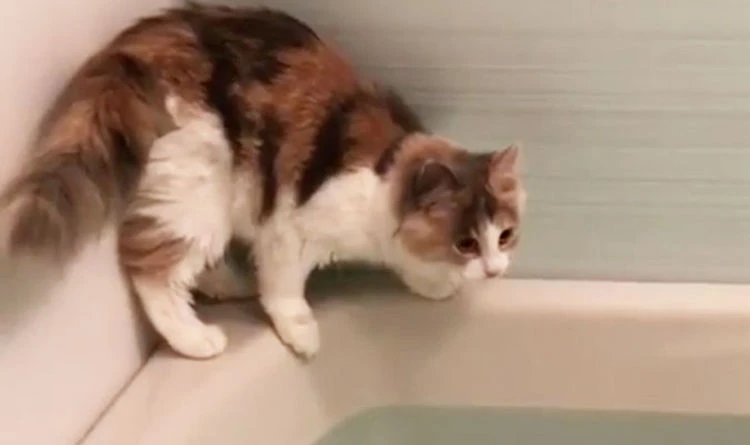Why Don't Cats Like Water? | A Look Into Cat's Dislike Of Water

It's a widely known fact that cats are not particularly fond of water. Unlike their canine counterparts, many cats exhibit an inherent dislike for getting wet. In this blog post, we'll explore the reasons behind why cats often shy away from water and shed light on the fascinating aspects of their aquatic aversion.
Self-Grooming Experts:
Cats are known for their meticulous grooming habits, and their dislike for water can be attributed to their exceptional self-grooming abilities. Their saliva contains enzymes that act as natural cleansers, effectively removing dirt and debris from their fur. Cats believe they can manage their hygiene without the need for water, making them inherently resistant to wetting their coat.
Cats are known for their meticulous grooming habits, and their dislike for water can be attributed to their exceptional self-grooming abilities. Their saliva contains enzymes that act as natural cleansers, effectively removing dirt and debris from their fur. Cats believe they can manage their hygiene without the need for water, making them inherently resistant to wetting their coat.
Sensitive to Temperature and Wetness:
Cats are highly sensitive to changes in temperature and prefer to maintain their bodies at an optimal level. Water exposure can lower their body temperature, and the sensation of being wet can be uncomfortable for them. This sensitivity to temperature and the dampness associated with water can trigger a reflexive aversion response in cats.
Loss of Control:
Cats are known for their need to feel in control of their surroundings and movements. The unpredictable nature of water, its resistance, and the loss of traction can make cats feel vulnerable and less confident. The lack of control in a wet environment can cause distress and anxiety for cats, leading to their aversion to water.
Cats are known for their need to feel in control of their surroundings and movements. The unpredictable nature of water, its resistance, and the loss of traction can make cats feel vulnerable and less confident. The lack of control in a wet environment can cause distress and anxiety for cats, leading to their aversion to water.
Limited Exposure during Early Development:
The dislike for water in cats can also be influenced by their limited exposure to water during their early development stages. Unlike some dog breeds that are commonly introduced to water activities at an early age, cats are not typically exposed to water in the same way. The lack of early positive experiences with water can contribute to their apprehension and unfamiliarity with aquatic environments.
The dislike for water in cats can also be influenced by their limited exposure to water during their early development stages. Unlike some dog breeds that are commonly introduced to water activities at an early age, cats are not typically exposed to water in the same way. The lack of early positive experiences with water can contribute to their apprehension and unfamiliarity with aquatic environments.
Predatory Predisposition:
Cats have a natural predatory instinct, and their dislike for water can be linked to their hunting heritage. Their prey, such as rodents and birds, tend to avoid water, and cats have adapted to focus their hunting efforts on land. Their reluctance to interact with water may be an evolutionary trait that helps them maintain their hunting prowess and agility.
Individual Personality Traits:
It's important to note that not all cats dislike water equally. Some cats may show more tolerance or even enjoy water-related activities, while others may display a strong aversion. Cats, like humans, have individual personalities, and their preferences and aversions can vary from one cat to another.
It's important to note that not all cats dislike water equally. Some cats may show more tolerance or even enjoy water-related activities, while others may display a strong aversion. Cats, like humans, have individual personalities, and their preferences and aversions can vary from one cat to another.
The aversion of cats to water is a complex blend of their grooming habits, sensitivity to temperature and wetness, need for control, limited exposure during development, predatory instincts, and individual personality traits. Understanding and respecting a cat's dislike for water is crucial for their well-being and ensuring they feel safe and comfortable in their environment. So, next time you observe your feline friend skillfully avoiding water-related encounters, appreciate their unique preferences and find alternative ways to engage and entertain them that align with their inherent instincts and behaviors.